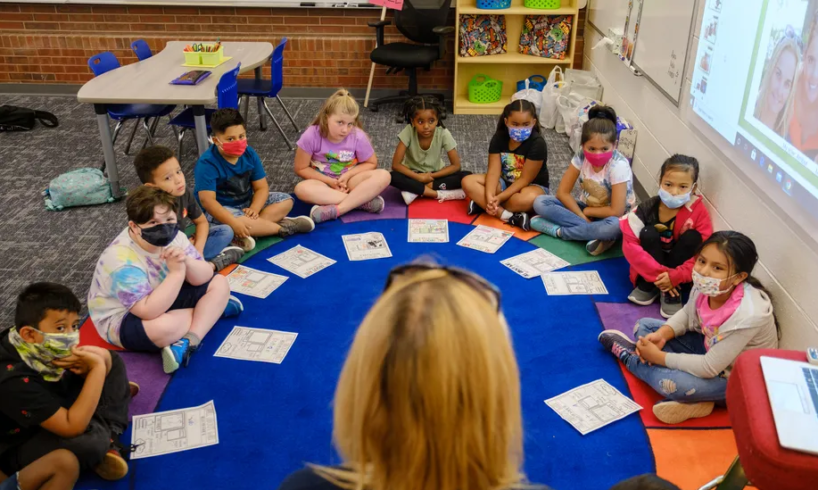
A majority of Denver teachers surveyed by the school board support a proposal to limit some schools’ autonomy and bolster job protections for teachers.
Principals, meanwhile, generally oppose the proposal, survey results show. The stiffest opposition comes from principals at innovation schools, which make up a quarter of all Denver schools and would be most impacted by the changes.
Innovation schools are run by the district but can waive certain policies, laws, and parts of the teachers union contract. The waivers allow them extra flexibility related to their school calendars and budgets, hiring and firing decisions, teacher training, and more.
The board’s proposal would curb some of that autonomy. The proposed changes, which are known as executive limitations because they give direction to the superintendent, were written by two board members: Xóchitl “Sochi” Gaytán and Scott Baldermann. Debate has been heated, with parents, teachers, and principals flooding board members’ inboxes, lining up to speak at meetings, arguing on social media, and hosting their own virtual advocacy events.
The board is set to discuss the proposal March 21 and vote March 24.
The survey results present the most comprehensive view of Denver Public Schools employees’ opinions so far. Nearly 1,100 teachers responded to the emailed survey, which was voluntary, as did 73 principals. That’s 21% of teachers at district-run schools and 45% of principals.
Results show 82% of teachers at traditional schools and 67% of teachers at innovation schools who answered the survey either strongly or somewhat support the proposal.
Supportive teachers said they would especially value having more job protections. Innovation teachers who oppose the changes said their schools benefit from the flexibility. Those who reported the best understanding of their schools’ flexibilities were the most opposed.
The survey results for principals at traditional schools were mixed, with 39% in support, 46% opposed, and 15% who had no opinion. Several traditional principals said they don’t expect the proposed changes would have any effect on their schools, where teachers already have provisions like Colorado’s version of tenure and access to a mediator to settle grievances.
The vast majority of innovation school principals who answered the survey— 86% — opposed the proposal. They expressed concerns about Denver Public Schools shifting from a district that values autonomy to one where schools are run in a top-down, one-size-fits-all way.
The survey did not cover parents, but many attended a pair of community feedback sessions hosted by the school board. They were overwhelmingly against the board’s proposal, according to a district analysis. Parents said their children’s innovation schools are doing a good job, and they fear limiting the schools’ autonomy would jeopardize that.
The parents who attended the sessions were mostly white with household incomes over $100,000, according to a poll of participants. That’s in contrast to the district as a whole, where 75% of students are students of color and 59% come from low-income families.
The No. 1 question parents asked was: Why are you doing this now?
“It feels like we are here today to solve a problem that doesn’t exist,” Yael Shalom, the parent of a kindergartener at Denver Green School Southeast, said at a separate virtual advocacy event organized by the innovation schools Wednesday, which also featured teachers and principals.
Some board members have also questioned the timing of the controversial proposal. Gaytán has explained that she wants the board to vote on it before 49 of Denver’s 52 innovation schools are up for renewal next year. She also wants to address the issue early in contract negotiations between the district and the teachers union, which have already begun.
At a meeting Thursday, several board members expressed frustration with what they said has been a rushed and flawed process that has led to deep division and misinformation.
“Our intent was to help teachers,” said board member Carrie Olson. “And how we’ve gone about this — we can all get better, but we’ve created a lot of strife in our community.”
This article was originally posted on Most Denver teachers surveyed support proposal to limit school autonomy